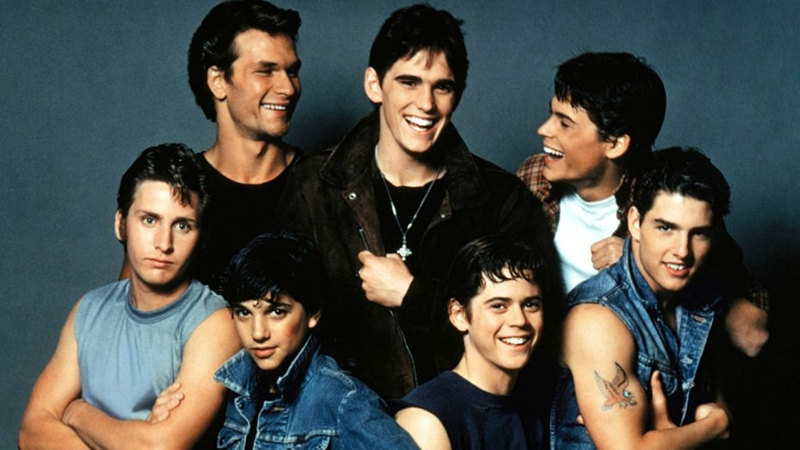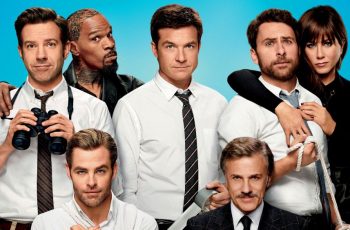I grow more prudish by the day, and I have now reached a point where I avoid watching films with graphic sexual content just as I have always tried to avoid people who discuss their (alleged) sexual exploits in graphic terms. Don’t get me wrong. I am not judging, I am certainly not calling for censorship, and I think repression is the source of much of our craziness. I simply believe that sexuality is an intensely private experience, and I would never dream of discussing my sex life in public or even with close friends, not even if I actually had something to discuss.
For these reasons, I was reluctant to watch Andrew Haigh’s “Weekend” (2011) and for these reasons I fell in love with Andrew Haigh’s “Weekend,” a movie in which the private-public debate over sex and sexuality is hashed out in an intense, intimate, and genuinely engaging fashion.
After attending a party with friends, Russell (Tom Cullen), a twenty-something man living in an English Midlands city (the movie was filmed in Nottingham, but it is never identified as such) excuses himself by saying he needs to get home, but stops instead at a night club where he picks up Glen (Chris New) after a slightly awkward, slightly drunken courtship. The next morning in Russell’s flat, Glen is eager to discuss their dalliance in detail and on official record. He’s doing an “art project” which involves tape-recording his lovers’ reflections on the night before. Glen is aggressive but never combative, and he knows just when to stop pushing Russell, who is so shy about the subject he frequently appears on the verge of blushing. Nonetheless Russell is game enough to keep answering, in no small part because he is intensely attracted to the new man in his life. The feeling is mutual, but happiness is hardly guaranteed. Glen “doesn’t do boyfriends” and, what’s worse, he’s leaving on Sunday evening for a two year school program in the States. The film charts the weekend over which their relationship begins, intensifies and, perhaps, ends.
Russell’s diffidence is not strictly a matter of propriety, but also stems from the sense of shame he has over his sexuality even among a group of straight friends who appear to be accepting and supportive. Why else would he lie to his best friend Jamie (Jonathan Race) about going home when he was planning to cruise for a hookup? His friends might be “OK” about it, but does that tolerance extend to actually listening to a play-by-play account of his romantic encounters? As Glen points out, gay men simply don’t have such discussions in public and he thinks it’s high time that changed. Russell doesn’t disagree with Glen’s basic premise, but he’s not ready to take the risk, plus he’s just not the kind of man who would talk about that sort of thing, even to make a point.
The push-pull between the two men is so fascinating and generates so much drama that viewers are strongly encouraged to choose Team Russell or Team Glen. Keep the pillow talk in the bedroom, or shout it loud and proud in a noisy bar? Not that picking teams requires you to root against the other. Writer-director Haigh hasn’t made the film nearly that didactic, nor has he turned his characters into philosophical representatives. In just 97 minutes covering a compact 48-hour span, he finds a way to draw out the complexities in the two lovers, never settling for pat answers. Yes, Glen’s bluster may stem from a previous romantic betrayal, but his cynicism is surely more than the result of a single trauma. Russell’s need for affection and approval may be related to the the fact that he’s an orphan… or maybe just because he’s human.
Haigh is a subtle observer with a marvelous ear for dialogue. Everyone will have their own favorite scene. Mine is a conversation the men have in Russell’s kitchen as Russell expressed skepticism over Glen’s project:
Russell: “I’m not sure if people want to hear about the random sex lives of strangers.”
Glen: “You just don’t want people to hear about your sex life.”
R: “Well, that’s true.”
G: “Imagine if everybody was just open about what they did, and everything was normal.”
R: “Yeah, but people are open, aren’t they?”
G: “Are they?”
Though they’re rehashing the main theme of the film, another fine layer is added here. It’s not just that Glen thinks people should talk more about sex and that Russell doesn’t. Rather, because of his own viewpoint, each man perceives a different level of discourse in society: Glen thinks people don’t talk about it much; Russell thinks they already talk about it plenty! And as a prude, I’m voting with Team Russell here, but I can appreciate Glen’s viewpoint as well.
Haigh and cinematographer Ula Pontikos choose distinct visual schemes to separate the private space (Russell’s apartment) from public space (everywhere else). In the apartment, characters are filmed in intimate close-ups, sometimes literally intimate like during the film’s sex scenes which are passionate but not particularly graphic. Outside, the camera hangs back, observing the two men from a distance and underscoring the precarious nature of their fleeting connection as they drift through crowds. Russell puts the visual design into words when he tells Glen that at home “I’m happy being gay,” but “Outside… it’s like I have indigestion.”
Both Cullen and New are exceptional, inspiring these fully realized characters, two men balancing lives in which they are alternately dissatisfied and joyful, sometimes gazing into an uncertain future and sometimes just relishing the moment. And “Weekend” works beautifully in the moment, and lingers long after an initial viewing. It’s certainly an affair to remember.
Video:
The film is presented in its original 1.85:1 aspect ratio. The movie was shot on a digital camera (primarily a Canon 5D with additional scenes on a Sony PMW-EX3, according to the Criterion notes) and this 1080p transfer is a fairly straightforward representation. The image detail is very sharp, and the cool color scheme is richly rendered, its strengths becoming most obvious in scenes set at the pool where Russell works as a lifeguard: the shimmering blue has a metallic glow. There is no film grain, of course.
Audio:
The DTS-HD Master Audio 2.0 soundtrack isn’t all that dynamic, but a showy sound design would undermine the intimate tone the film achieves so vividly. There are occasional bits of mumbled dialogue, but that’s part of the design. Combined with the British accents, this may mean American viewers need to use the optional English subtitles, but that’s hardly a problem. I always turn subtitles on anyway.
Extras:
The primary extra is a 30-minute interview (2012) with Haigh, Cullen, New, Pontikos, and producer Tristan Goligher. Haigh gets most of the screen time and discusses both the film’s production and some of his concerns about the film’s reception. In the film, Glen fears his art project will only appeal to gay audiences,, but Haigh is optimistic that “Weekend” will play for anyone looking for a good movie and a good romance. He’s right.
The disc also includes two short films directed by Haigh: Cahuenga Blvd (2003, 6 min.) and “Five Miles Out” (2009, 18 min.) The first feels like a pretty rough but heartfelt student film about a brief romance between a young man and young woman. I haven’t watched the second.
The rest of the extras are short features, including a separate interview with Haigh about the film’s sex scenes (6 min.), audition tapes of Cullen and New (10 min.), some on-set footage shot by Chris New (8 min.) and a short piece about the set photography by the team of Quinnford and Scout (AKA Oisin Share and Colin Quinn).
The 16-page insert booklet features an essay by critic Dennis Lim.
Film Value:
When I heard that “Weekend” was a “hookup” movie, I avoided it. I’ve never been able to understand how people who just met could hop in the sack together, but “Weekend” sure makes the emotional connection a convincing one. Russell and Glen are such vivid, dynamic characters, you are unlikely to forget about them anytime soon. “Weekend” is one of the best films of 2011, and one of the great modern romances. Please don’t miss it.


